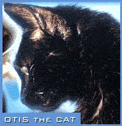Dr. Justin Perrault—Director of Research at Loggerhead Marinelife Center, a nonprofit sea turtle research, rehabilitation, education, and conservation center, located in Juno, Florida—recalls growing up a landlocked kid in Memphis, Tennessee whose first exposure to a sea turtle came during a family trip to Mexico when he was 12.  This serendipitous encounter spurred a profound connection with sea turtles, fastened to another, subsequent serendipitous development involving, he acknowledges, misplaying his grad school application process, and ended up attending Florida Atlantic University, which happened to have a specialty in…sea turtles. Perrault addresses what he likes about sea turtles, what attributes of theirs he finds most intriguing. Perrault provides
This serendipitous encounter spurred a profound connection with sea turtles, fastened to another, subsequent serendipitous development involving, he acknowledges, misplaying his grad school application process, and ended up attending Florida Atlantic University, which happened to have a specialty in…sea turtles. Perrault addresses what he likes about sea turtles, what attributes of theirs he finds most intriguing. Perrault provides  an overview of the history and evolution of Loggerhead Marinelife Center, dating back to the late 70s/early 80s when Eleanor Fletcher who was struck by the large number of sea turtles nesting on the shore of Juno Beach, began doing the very beginnings research and the formative stages of the education programs that have become a signature element of Loggerhead. (She was later dubbed “The Turtle Lady.”) Perrault points out the Center underwent a major expansion in 2007, and is in the midst of yet another expansion currently. So even now, the facility includes a research lab, an animal
an overview of the history and evolution of Loggerhead Marinelife Center, dating back to the late 70s/early 80s when Eleanor Fletcher who was struck by the large number of sea turtles nesting on the shore of Juno Beach, began doing the very beginnings research and the formative stages of the education programs that have become a signature element of Loggerhead. (She was later dubbed “The Turtle Lady.”) Perrault points out the Center underwent a major expansion in 2007, and is in the midst of yet another expansion currently. So even now, the facility includes a research lab, an animal  hospital (a Live TurtleCam allows you
hospital (a Live TurtleCam allows you ![]() to observe one of the patients; that morning, the patient was Little T.), exhibits, tanks and aquariums. He mentions that one by-product of the present expansion will be a larger, more versatile hospital, equipped to treat more patients and more maladies, as something of a postscript to describing what ailments or injuries are most commonly responsible for bringing turtles in for care. He outlines some elements of his research, which this time of year—nesting season—involves wee-hours treks to look for, or at, nests, often noting what’s in the nests and, sometimes, what’s indicated in the tags affixed to them. (Photos Courtesy of Loggerhead Marinelife Center) (https://marinelife.org, https://www.facebook.com/loggerheadmarinelifecenter/ https://www.instagram.com/loggerheadmarinelifecenter/)
to observe one of the patients; that morning, the patient was Little T.), exhibits, tanks and aquariums. He mentions that one by-product of the present expansion will be a larger, more versatile hospital, equipped to treat more patients and more maladies, as something of a postscript to describing what ailments or injuries are most commonly responsible for bringing turtles in for care. He outlines some elements of his research, which this time of year—nesting season—involves wee-hours treks to look for, or at, nests, often noting what’s in the nests and, sometimes, what’s indicated in the tags affixed to them. (Photos Courtesy of Loggerhead Marinelife Center) (https://marinelife.org, https://www.facebook.com/loggerheadmarinelifecenter/ https://www.instagram.com/loggerheadmarinelifecenter/)

ALSO: I spoke briefly with Karen Windsor, executive director of Foster Parrots (part of The New England Exotic Wildlife Sanctuary), a Rhode Island facility that, on April 1, experienced a major fire roaring through a section where some of the birds were housed, killing more than 80 of them. Obviously, this was a devastating tragedy, and I invited Karen on the program to see how people might help her and her Foster Parrot colleagues rebuild and rebound. First, though, she provided an overview of the sanctuary and its mission, noting their “animals don’t belong in captivity” credo, and the challenges posed by having parrots as pets, exacerbated by the bird industry that tends to obscure or slant the crucial information that prospective bird buyers would find helpful (the birds’ repetitive screaming, other striking behaviors, like pulling its feathers out, their notable longevity–they can live 60 or more years, etc). We discussed that the most fundamental need Foster Parrots has in the wake of the fire is “funding,” Windsor explained—more so than supplies or other resources—and that monetary donations can be made via their website: https://www.fosterparrots.com/support-us-page
COMEDY CORNER: Paula Poundstone’s “Cats Puff Up” (https://paulapoundstone.com)
MUSIC: Rebekah Pulley’s “Talking Animals Theme,” instrumentals
NAME THAT ANIMAL TUNE: We didn’t play “Name That Animal Tune” today.
AUDIO ARCHIVE:
Listen Online Now:



